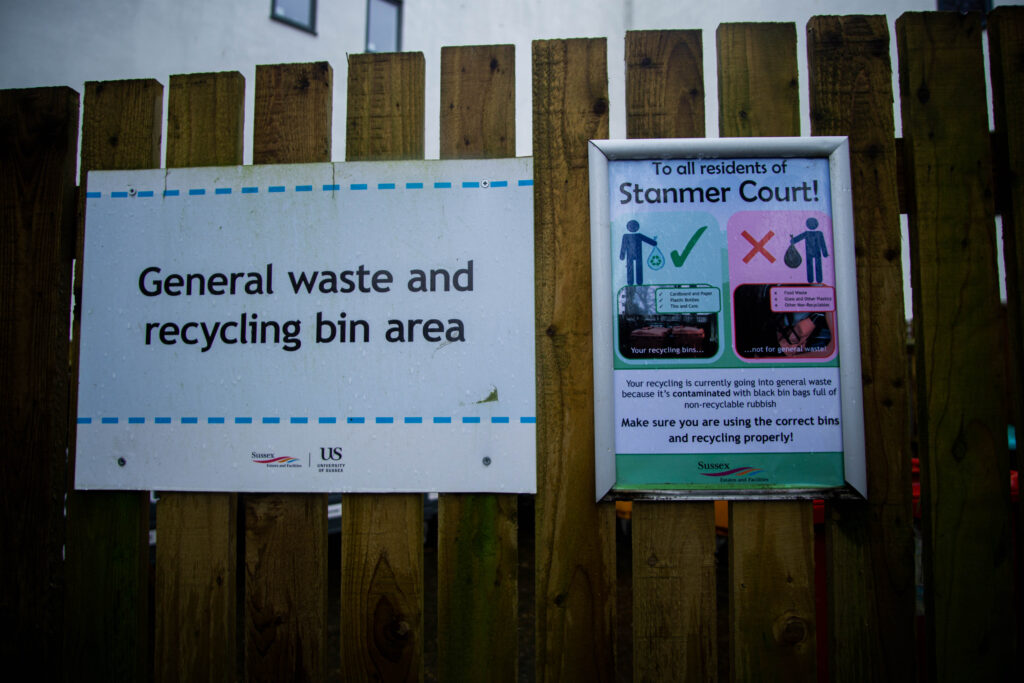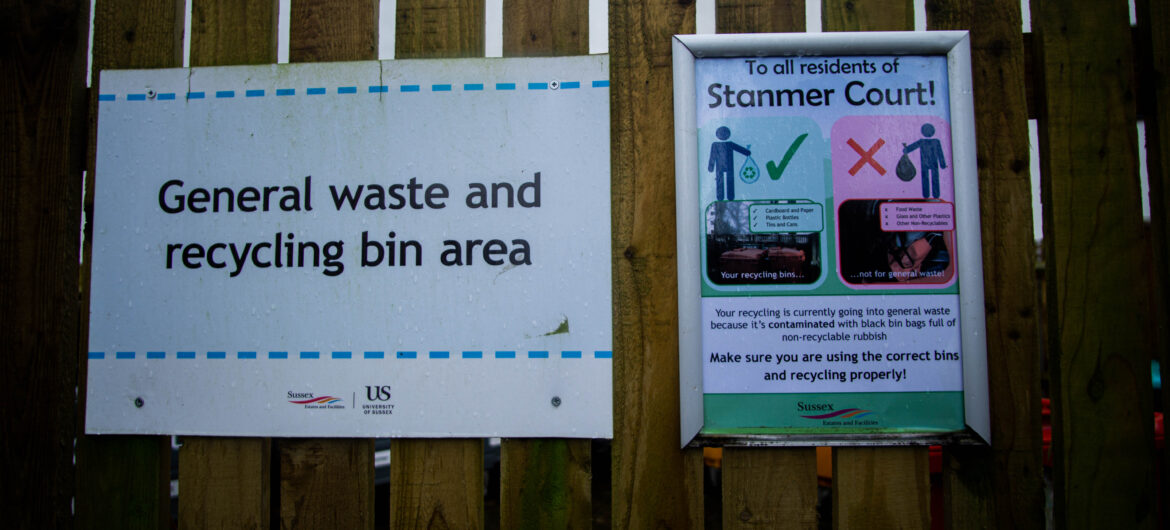For nearly six months, a sign outside both of the rubbish disposal areas for Stanmer Court accommodation states that “recycling is currently going into general waste because it’s contaminated.” The University of Sussex aims to become one of the most sustainable universities in the world, with the Sustainability Strategy, published June 2021, setting a target of 50% of its waste to be recycled by 2025. The apparent ongoing issue with contamination undermines the credibility of that goal.
Stammer Court is the only accommodation off site. It is easy to access on foot, right next to Falmer Station, but in order to access by vehicle you have to drive through the Southern Water site off the A270. This degree of separation from the Falmer campus, alongside the inconvenience factor, may contribute to a certain reluctance to properly address the recycling problem.

In email correspondence with the Sussex Estate and Facilities (SEF) flagging this issue, they stressed the requirement of recycling. In one email to The Badger, SEF replied with reference to the accommodation handbook which highlights the issue of contaminated recycling. On page 16 of the handbook it states: “All students are required to place recycling into the external bins provided. If non-recyclable items are mixed in recycling bins, the contents become contaminated, and all of the waste will have to be processed as general waste.”
If recycling is a requirement, its proper disposal should be too. There has been no information from SEF about what is being done to address the issue, nor any updates to Stanmer Court residents since the signs were put up. It is unclear whether recycling continues to go to general waste or if the sign is outdated.
Furthermore, it appears that Stanmer Court is the only accommodation with this sign. Nicola Thomas, the residential building manager for Stanmer Court, stated: “This does happen in all areas on campus – including other residences – but Stanmer may be the only area that has this signage.” When questioned on what is being done to address this, she went on to write: “Regrettably, this is a continued issue with recyclables ending up in the general waste stream.” If this is the case and indeed is regrettable, then why has it gone unresolved for at least half a year?
Considering the innovative measures Sussex is taking to combat waste and reach its sustainability goal, with a recent example being a pilot initiative led by Dr Andre M Chagas to turn Sussex’s plastic waste into 3D printing filament, clearly this is an issue which strikes at the heart of what the University and its students stand for – working for a better tomorrow. This is only possible if it is a joint effort and a collaboration between students, the administration, and SEF.



